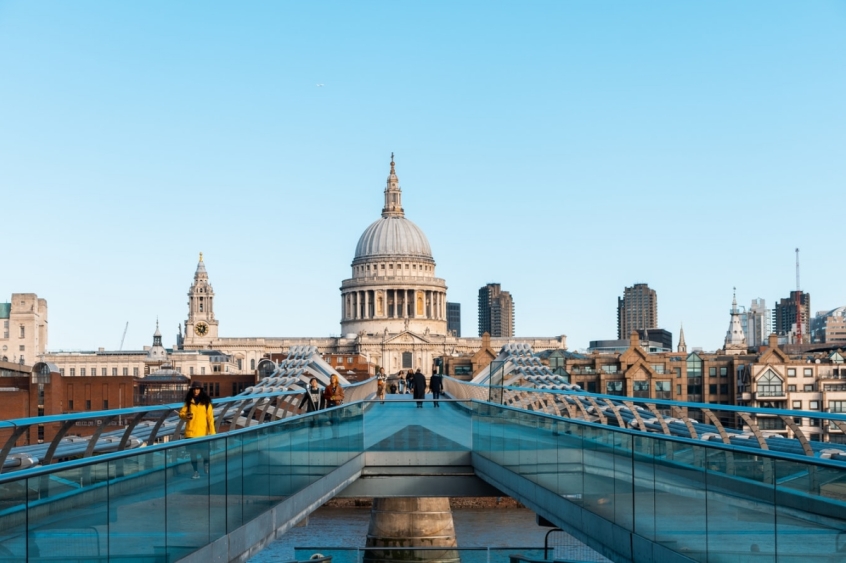
The financial impact of Covid-19 on St Paul's Cathedral has been so severe that the iconic landmark is at risk of permanent closure, its Dean has warned.
The Very Rev Dr David Ison told the BBC that "big decisions" needed to be made regarding the building's future after revenue fell by 90% in 2020 - a trend that is expected to continue this year even after lockdown ends.
Tourism accounts for most of St Paul's income, but this was wiped out when the cathedral was forced to close to tourists during the pandemic.
This has forced the redundancies of a quarter of staff, with others placed on furlough.
Although tourist destinations are opening back up again with the easing of lockdown, it is expected that visitor numbers will remain below pre-pandemic levels for some time because of the drop in international travel.
The cathedral has received £3.3m from the Government's £1.57bn culture recovery fund, but this falls well short of the £8m a year needed to run the landmark, and according to the BBC, nearly all of the cathedral's reserves have been spent.
"If we can't raise the resources to be able to employ the people to look after the building and pay for the heating and lighting, we would have to shut our doors," said Dr Ison.
One urgent problem facing the cathedral is the roof, parts of which are "rotting", putting its valuable collections and precious objects at risk of damage.
The money that had been earmarked for a multi-million pound project to replace the ageing lead had to instead be spent on keeping the cathedral afloat during the pandemic.
Oliver Caroe, the surveyor of fabric at St Paul's, said he was trying his best to patch up leaks but warned that "there's only so long you can do that for" before a permanent fix would need to be found.
Dr Ison added that while the Church of England has been the "custodian" of the nation's ancient churches "for many generations", it "no longer has the income to do that".
"It's just spread too thinly," he said.













